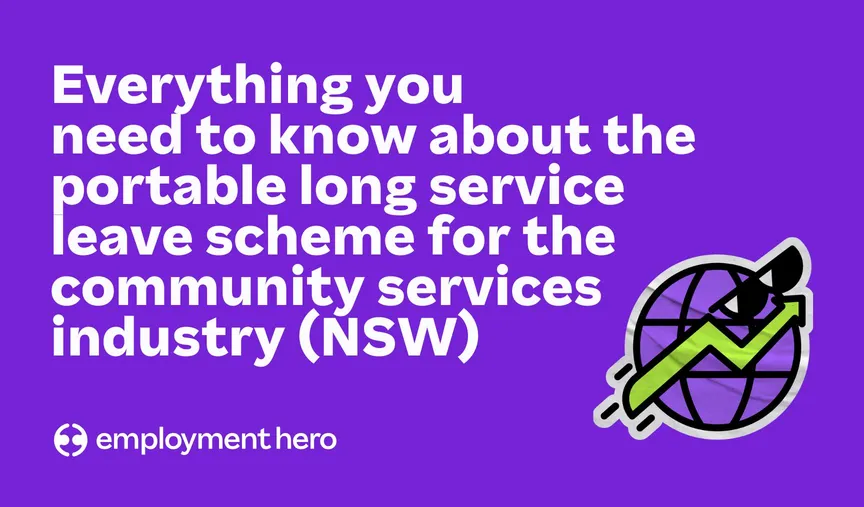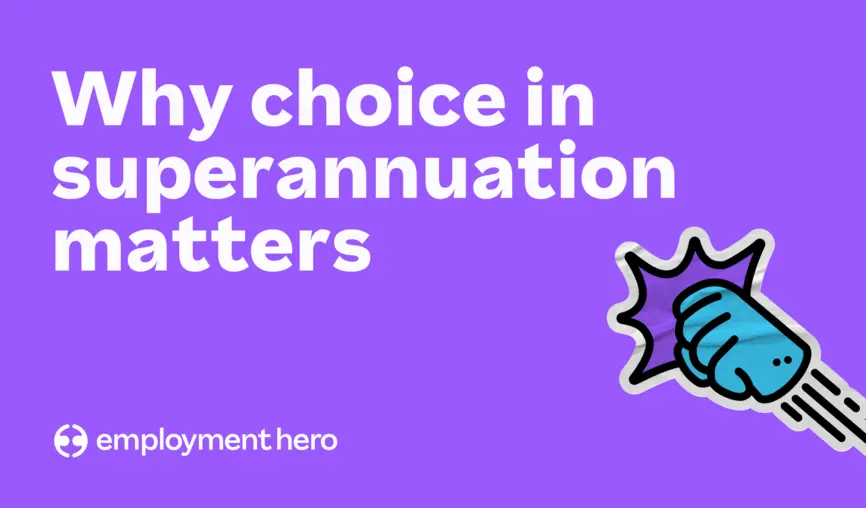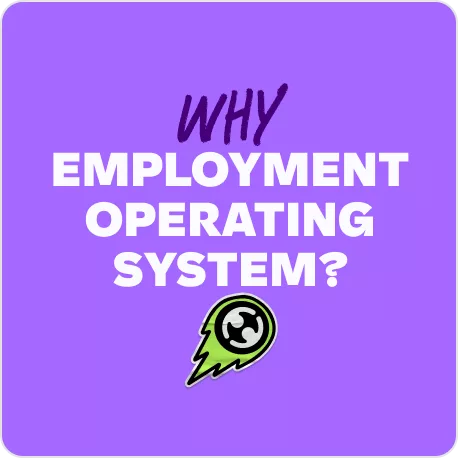Who is the Fair Work Ombudsman?
When it comes to managing your team, you have a lot on your plate. But are you keeping up with Australia’s complex employment laws?

Contents
Who is the Fair Work Ombudsman? Fair question! Before we answer it for you, here’s another question; why should you care? Owning a business means you have many pots on the boil at any one time.
Whether it’s managing your bookkeeping, keeping your employees engaged or ensuring you’re remaining compliant, there are so many factors to consider.
While you’re busy setting long-term goals, negotiating with suppliers, building a social profile and balancing your books, you’re also finding, mentoring and invigorating your staff.
Your team can make or break your business, so it’s important that as a business owner, you know what your obligations are to your workforce. It’s even more important you know how to meet those obligations.
If you don’t, your staff may become dissatisfied, lose motivation, or worst of all, feel unsafe in the workplace. You’re also likely to find yourself on the wrong side of the law. You don’t want to end up in an infamous wage theft scandal! Thankfully, the Fair Work Ombudsman of Australia provides clear instructions on how to best meet your obligations as an employer.
If you need help with understanding your HR compliance, the essential guide to HR compliance in Australia can be a great resource.
Keep reading to learn what the Fair Work Ombudsman is and our top tips for adhering to the Fair Work Act 2009 as an employer.
The role of Fair Work Ombudsman
In a nutshell, the Fair Work Ombudsman exists to promote safe and productive workplace relations. Its role is to ensure the Fair Work Act 2009 is adhered to by employers; or that employees are informed about workplace laws, award wages and their contractual obligations.
An independent statutory office, the group is set up by law and can authorise as well as act on legislation on behalf of the Federal Australian Government.
The Fair Work Ombudsman also assists with:
- Processing and investigating complaints about breaches of workplace laws
- Providing training tools for employers to educate their staff about their rights and obligations
- Monitoring some working visa arrangements
- Maintaining harmonious industry stakeholders and relationships with union bodies
Understand your Fair Work Act obligations as an employer
As a business owner, you are no stranger to making decisions and taking the lead. By ensuring you’re across your Fair Work Act obligations, you lead by example with accountability and duty of care.
As an employer, you are legally required to provide a copy of the ‘Fair Work Information Statement‘ to all new employees before or as soon as they begin working for you. The Fair Work Act details employer obligations as modes of ‘best practice’ and outlines clear National Employment Standards.
For those unfamiliar with industrial relations and their impact on your business, the introduction to industrial relations article offers an easy-to-understand explanation.
These standards stipulate ten entitlements for your full-time and part-time employees. These include:
- A maximum of 38 hours can be worked each week (additional hours must be within reason)
- An employee has the right to request flexible working hours. This request must be made in writing and accepted or declined within 21 days of application. The reason for the request can include parental obligations, acting as a primary carer, living with a disability, being over the age of 55, experiencing domestic violence. The flexibility requested may apply to hours worked, location of work and/or pattern of work.
- Employees can take leave for: parental leave, annual recreational leave, personal or carer’s leave, compassionate leave and family and violence leave. Public holidays are a form of leave, as is community service leave and long service leave.
- Notice and redundancy pay must be issued in case of termination of employment due to insolvency or bankruptcy.
- Award wages must be tailored to each employee’s service and honoured in the outlaying of transferred funds and documentation such as payslips.
- To avoid claims of unfair dismissal from a former employee, an employer should provide clear expectations for improvement prior to the termination of employment. If these are not followed, you should complete the Small Business Fair Dismissal Code Checklist when dismissing the employee.
Level up your knowledge with free online courses for managing staff
There are many courses online for managing staff and meeting your obligations as an employer. How can you know which ones to trust? The best place to look for reliable, up-to-date training, is the Fair Work Australia website.
We recommend working through the following online short courses to improve your knowledge and ensure you aren’t missing any important Fair Work guidelines.
1. Hiring employees
Hiring the right employees for the job starts with developing an accurate and attractive role description. This means including the tasks and responsibilities within the body of the call-out. You also want to entice your dream applicant with perks and your team’s workplace culture.
The next steps include conducting face-to-face interviews and reviewing applicant skills against thorough selection criteria. Interested in learning more about hiring employees? You can enrol in the course here.
For a deeper understanding of the legal requirements of hiring in Australia, check out the resource here.
2. Managing performance
Once you’ve hired your new employee, it is important to keep them on track and motivated. You can do this by using key performance indicators, objectives and key results (OKRs) and regular catch-ups such as 1:1s.
Reward systems including commission-based selling can work to motivate staff and promote increased capital and exposure for your business. Learn more about managing performance with the free course here.
3. How to have difficult conversations in the workplace
Unfortunately, sometimes business owners need to address weaknesses in the workplace. This means having difficult conversations about drops in employee performance or perhaps resolving conflict between one or more employees.
Fair Work Australia has many resources and online hypothetical scenarios to coach and prepare you for these tricky conversations. If you want to learn more about having difficult conversations in the workplace, you can enrol in the course here.
4. Workplace flexibility
Flexibility is one of the National Employment Standards set out by Fair Work Australia and an example of employee ‘best practice’. The flexibility requested by your employees varies depending on their needs as a professional and in their personal life.
This means it is important to be open to their request while also tailoring it to best suit your business plan. Fair Work has set out additional information and training to help you understand workplace flexibility here.
5. Record keeping and payslips
Comprehensive record-keeping and issuing of payslips is another example of ‘best practice’ and a National Employment Standard litigated by Fair Work Australia. It is central to your financial record keeping to stay on top of payroll.
Feeling overwhelmed at the thought of payslips and record-keeping? Get up to speed here with the free course.
Consider engaging an expert in Human Resources
As a business owner, it can be easy to feel as if you need to control all movements within your business.
To minimise the pressure of managing and implementing the Fair Work Act in your business, you may be in a position to hire an external Human Resources (HR) agency or create an in-house role for an HR consultant.
To streamline your HR processes and reduce admin tasks, consider downloading our guide.
This maximises your business’s ability to monitor workplace harmony. HR officers also bring services such as recruitment procedures, interpersonal communication training and team-building workshops to the table.
Outsourcing the role of managing the Fair Work Australia guidelines within your business means you can rest assured that your business is a safe and Fair Work Australia compliant place for your employees.
Now, we don’t mean to beat our own drum but did you know that an Australian HR Software like Employment Hero can help you with your employment compliance?
✅ Interested? Get in touch with one of our small business specialists today who will walk you through a demo of Employment Hero.
Fair is fair
The Fair Work Ombudsman is Australia’s independent statutory authority on workplace and employee rights. As a business owner, the free, online resources available at the Fair Work Australia website will help to ensure your business is compliant with all National Employment Standards.
We also recommend recruiting a Human Resources agency or in-house consultant to support you in managing your employer obligations according to the Fair Work Act 2009.
Understanding Australia’s fair trading laws is also crucial for compliance. Check out our article to ensure you’re not breaking any laws and protecting your business.
Just as your business may invest in research for a new product launch, investing in comprehensive knowledge of, and an implementation plan for the rights of your workforce is a smart way to achieve workplace harmony.
Looking for more information on business compliant?
If you’re looking for information on remaining compliant, we’ve put together this bundle to help you. We want to help Australian SMBs grow with confidence so we’ve bundled up some essential employment templates.
In here you’ll find
- Contracts: Templates for full time and casual employees
- Policies: Key policies for your business: Code of Conduct, Workplace Health and Safety, Grievance Handling and Anti-Bullying and Anti-Harassment
- Performance Reviews: How to conduct fun performance reviews and suggested questions
- Wage Reviews:Template and process to help you conduct compliant wage reviews
Related Resources
-
 Read more: NSW Government introduces Portable Long Service Scheme for the Community Services Industry
Read more: NSW Government introduces Portable Long Service Scheme for the Community Services IndustryNSW Government introduces Portable Long Service Scheme for the Community Services Industry
The NSW Government has introduced portable long service leave for the community services industry. Learn what it is and what…
-
 Read more: Payday Super changes: What we’re fighting to fix and why it matters to you
Read more: Payday Super changes: What we’re fighting to fix and why it matters to youPayday Super changes: What we’re fighting to fix and why it matters to you
Big changes are coming to how superannuation is paid in Australia. Here’s what we’re asking Treasury to seriously consider updating…
-
 Read more: Why choice in superannuation matters
Read more: Why choice in superannuation mattersWhy choice in superannuation matters
What could be coming when Payday Super hits and what Employment Hero is doing about it.











